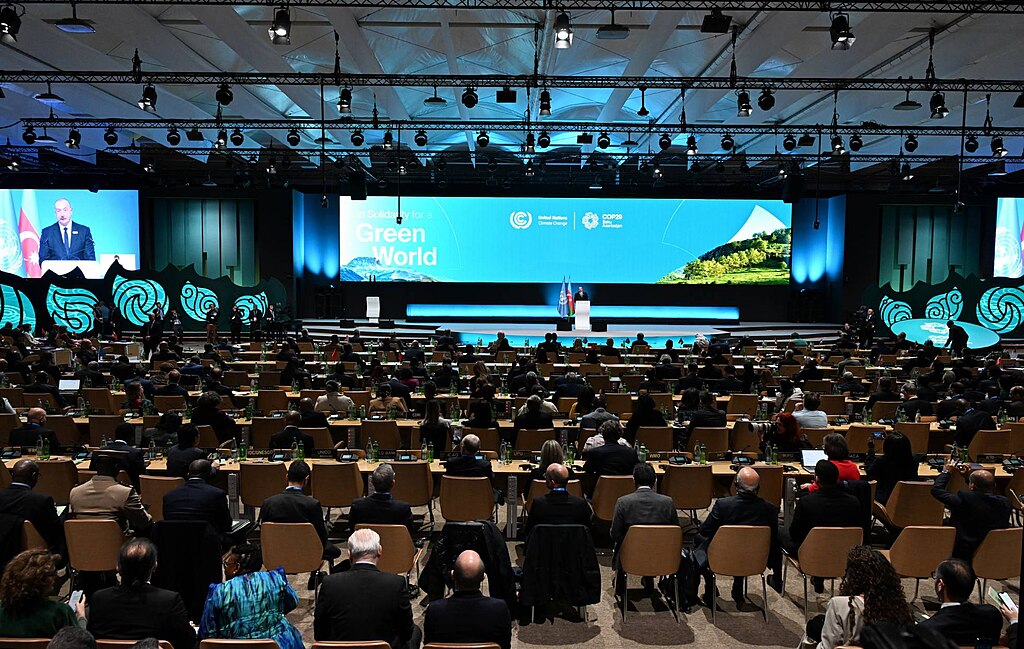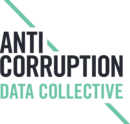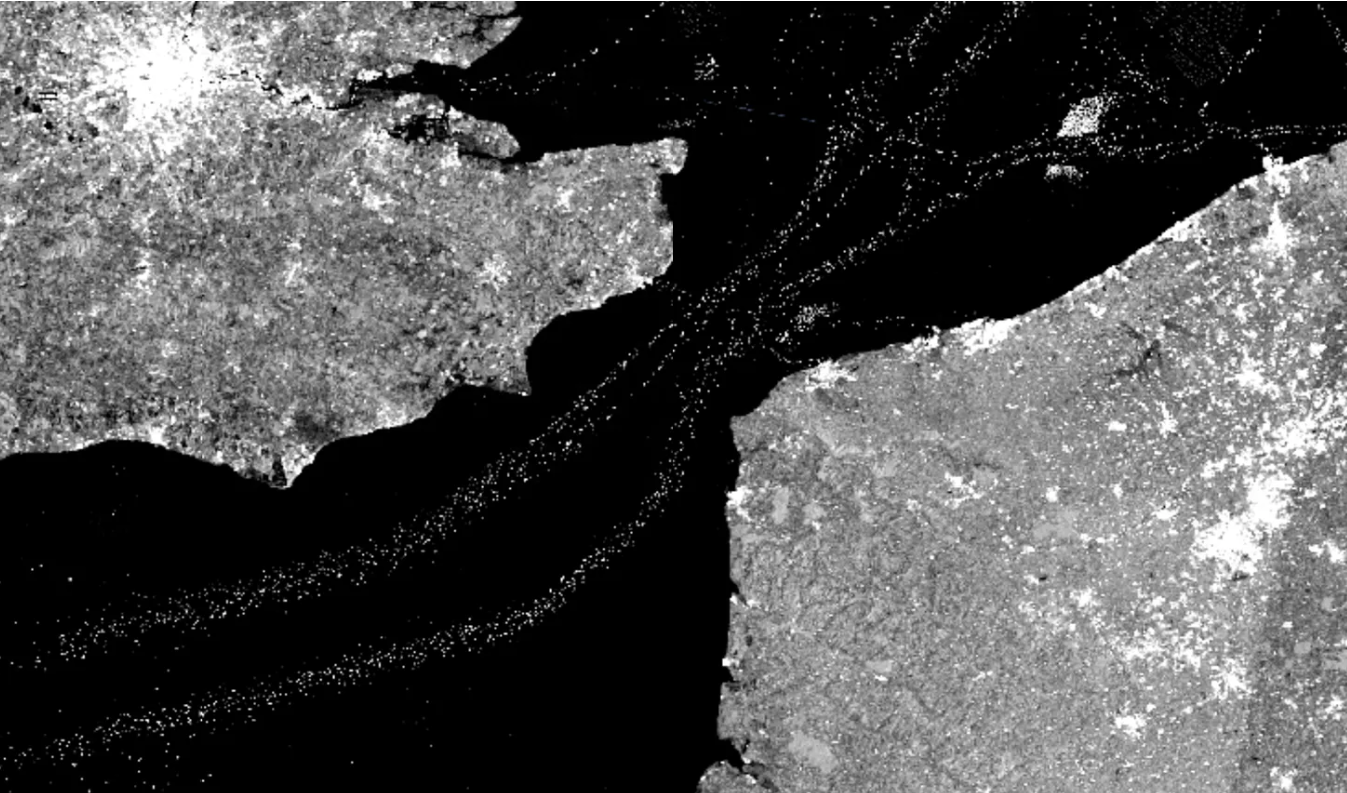From risks to reality. How corruption and undue influence undermined multilateral climate action at COP 29

At the end of October, the Anti-Corruption Data Collective and Transparency International published a report detailing risks to the integrity of the UNFCCC COP process highlighted by Azerbaijan’s selection and activities as host and president of COP 29.
Full report: COP Co-Opted? How Corruption and Undue Influence Threaten Multilateral Climate Action
Published before the climate summit had taken place, the report sought to highlight key areas that the climate, anti-corruption, human rights, diplomatic and other communities should pay attention to as COP 29 unfolded in Baku. Our analysis suggested that a combination of corruption, autocracy, suppression of critical voices and the centrality of fossil fuels in Azerbaijan’s state structure posed a serious threat to the integrity of the climate summit, exacerbated by vulnerabilities in the UNFCCC processes and arrangements for the COP in general.
With the event now behind us, we can compare the risks identified in our report with how realities emerged in Baku. Sadly, it appears that COP 29 lived up to many of our fears, becoming an unfortunate case study in how corruption and undue influence can undermine multilateral climate action.
Risk 1: COP negotiations can be unduly influenced and captured by corporate interests, including fossil fuels companies
The potential for undue corporate influence over the negotiations at COP 29 was high in part due to the expected presence of many fossil fuel industry and other corporate lobbyists. Azerbaijan’s structural dependence on its fossil fuels industry and close ties with several international oil companies suggested that lobbyists for these interests would see the summit as an opportunity to exert their influence over proceedings.
Indeed, the Kick Big Polluters Out Coalition found that at least 1,773 fossil fuels lobbyists had been granted access to the summit, eclipsing the delegations from the most climate-vulnerable nations.
With Azerbaijan publicly signalling that it intended to continue pursuing new oil and gas projects, other industries that stand to benefit from unsustainable dependence on fossil fuels also sought to influence the conference outcomes. The Guardian revealed that almost 500 lobbyists for unproven carbon capture and storage technology attended COP 29.
DeSmog also found that more than 200 lobbyists for large agricultural corporations attended the COP, representing the interests of an industry responsible for more than a third of global carbon emissions.
The next COP will take place in Brazil, where agriculture – particularly cattle grazing – is a major cause of deforestation in the Amazon Basin. Twenty of the 53 lobbyists for the meat and dairy industries who travelled to Baku attended as part of the Brazil government delegation, according to DeSmog.
As we highlighted in our report, corporate representatives can attend UNFCCC events as part of government delegations without declaring the nature of their relationship to the government sponsoring their participation. This opacity reduces media and civil society’s ability to scrutinise the influence of private interests over governments’ negotiation positions. Transparency International has found that half of the participants at COP 29 effectively did not disclose their relationship to the country or organisation that nominated their attendance.
As host country, Azerbaijan invited 1,880 guests, none of whom declared a paid relationship to their host. However, some of these guests work for organisations that declared such a relationship for staff attending as part of Azerbaijan’s national delegation. For instance, as reported by OCCRP, the Tony Blair Institute, a non-profit run by the former British Prime Minister, sent 12 advisors to Baku in the Azerbaijan delegation, all of whom declared a paid relationship or contract with the nominating entity. However that relationship is not visible for the five institute representatives who attended as guests of Azerbaijan, including Blair himself and the think tank’s managing director.
Moreover, the line between public and private interests becomes blurred when state owned enterprises are concerned. At a climate summit, the presence of state owned oil and gas companies like Azerbaijan’s SOCAR, the UAE’s ADNOC or Saudi Arabia’s ARAMCO in government delegations is particularly worrying.
According to reporting from the summit, Saudi Arabia blocked language in the COP 29 declaration that would have furthered countries’ commitments to transition away from fossil fuels. Saudi Arabia was also accused of editing an official COP 29 document before other countries received it. The CEO of Saudi ARAMCO and nine executives attended COP 29 as guests of Azerbaijan. This is in addition to the two senior Saudi ARAMCO executives who were nominated by the Saudi Arabian government delegation.
Risk 2: The COPs can become a forum for fossil fuel diplomacy and deal-making
Shortly after our report came out, Global Witness and the BBC published an undercover investigation which showed the CEO of COP 29 offering to introduce a fake investor to SOCAR executives to discuss oil and gas deals.
This exposé confirmed one of our report’s most dire predictions. Our analysis suggested that the close involvement of Azerbaijan’s state owned oil and gas company in the organisation of COP 29, combined with its plans for regional upstream expansion and increased exports to Europe, would lead to the climate summit being used as a forum for fossil fuel deal-making behind closed doors.
However, SOCAR also made deals out in the open.
Azerbaijan’s president Ilham Aliyev presided over a “joint development agreement” between SOCAR and Bulgarian mining company Asarel Energy. During COP 29, SOCAR also signed deals to supply Slovakia with fossil gas and increase exports to Serbia.
In the background to this, is the European demand for a gas supplier to replace Russia.
As our report spelled out:
“The risk for Europe, and indeed the world, is that a short-term need for new sources of gas may lead to an unnecessary expansion of oil and gas development inconsistent with keeping warming below 1.5 degrees Celsius, and to dependency on another gas supply that can be weaponised by an autocratic regime with little regard for international law.”
Risk 3: The organisation of COPs can become an opportunity for corrupt and kleptocratic personal enrichment
The COP Co-Opted report highlighted the links between the corporate sponsors of COP 29, known as “Green Zone Partners”, and the family of President Ilham Aliyev. In the absence of rules from the UNFCCC about which companies can sponsor a COP, the summit appeared to be a potentially lucrative opportunity for these corporations to present unproven sustainability credentials on the world stage.
OCCRP later revealed that another Green Zone Partner, Giltex Holdings, also had links to the first family of Azerbaijan:
“COP29’s “Textile Partner,” GILTEX, which controls up to 70 percent of the local textile market, was part of a conglomerate called Gilan Holding until last year. A 2018 OCCRP investigation revealed that President Aliyev’s daughters had a majority stake in Gilan Holding through a company registered in the United Arab Emirates, alongside the children of Kamaladdin Heydarov, Azerbaijan’s Emergency Situations Minister. (Heydarov is also a member of the COP29 organizing committee.)”
The potential prioritisation of business interests over the organisation of a summit that can achieve positive outcomes for the planet would stand in the way of free and open participation, which is essential for broad consensus in which voices most impacted by the climate crisis are heard. From sandwiches to hotels, COP 29 attendees had to pay over-the-odds prices.
Additionally, the lack of controls over which companies can become corporate sponsors of COP opens another door for undue corporate influence over conference outcomes, as corporate sponsors may also be granted access to COP negotiations.
Among the COP 29 sponsors:
- At least 16 executives for Pasha Holding including the CEO attended COP 29 as guests of Azerbaijan or part of the country’s delegation.
- The vice-president for legal and corporate affairs and the CEO of Silk Way West Airlines attended as guests of Azerbaijan.
- Six executives from Azersun Holding attended COP 29 as Azerbaijan’s guests, plus one in Azerbaijan’s official delegation and eight in overflow.
- COP 29 sponsor Rhenus Logistics was awarded four guest passes for the conference.
- The CEO of NEQSOL Holdings, another COP 29 sponsor, was part of the official delegation, with four others joining through Party Overflow.
Risk 4: Hosting COP can become an opportunity for greenwashing
Our report detailed how a strategic PR contract with global communications firm Teneo had allowed Azerbaijan to forefront its narrative that increased oil and gas extraction is compatible with the goals of the Paris Agreement. The COP Presidency gave the Azerbaijani government a platform to insert this message into its interviews with some of the world’s most prominent media outlets.
What we could not predict, is how ‘unofficial’ channels would attempt to control the narrative.
Even before the summit got underway, investigations revealed the use of apparently fake accounts and bots to counter criticisms of Azerbaijan on social media.
Interestingly, some of the accounts deployed to push back on criticism missed their targets, and in doing so revealed the apparently coordinated nature of their attacks.
After Global Witness invited COP 29 and the Azerbaijan government to respond to its undercover investigation, pro-government media published an article warning of the impending investigation. The same arguments were then deployed by suspicious accounts on social media in response to other international media reports about COP 29, despite these investigations having nothing to do with the Global Witness / BBC investigation the posts referred to.
The pushback reached new heights of absurdity later in November, when pro-government media attacked OCCRP and other international investigative media, going so far as to claim that a journalist working on Azerbaijan is nothing more than an avatar.
Media reporting also demonstrated how the COP 29 Presidency’s action agenda appeared to signal progress on climate change while avoiding negative impacts for the oil and gas industry. The Financial Times reported on a methane leak outside Baku featured in our report and pointed out that:
“As the current host of the world’s most important climate summit, Azerbaijan — which derives 90 per cent of its export revenues from fossil fuels — plans to unveil a pledge to tackle methane in organic waste. The US and China will also hold a side meeting on the subject. By contrast, emissions coming from the oil and gas industry are not leading this year’s agenda.”
To give credit where it is due, Azerbaijan and Caspian Sea neighbours Kazakhstan and Uzbekistan did sign an agreement to develop undersea transmission cables for renewable energy. Given the corruption risks and prominent role of fossil fuels in these countries’ economies, the implementation of these plans should be carefully monitored.
What needs to happen
Positively, the furore around COP 29 has sparked calls for reform of the COP process by senior figures in the climate and diplomacy spheres, organised by the Club of Rome.
The recommendations in our report outline an achievable roadmap for such reform that maintains COP as an important venue for climate negotiation while countering the undue influence of corrupt or authoritarian host governments and their industry allies.
This includes specific criteria for hosting a COP that take into account commitment to the goals of the UNFCCC, greater transparency around conference organisation and due diligence of partners, and increased transparency and accountability for both the COP organising team and participants across government, business and civil society.
For the full set of recommendations, download our report: COP Co-Opted? How Corruption and Undue Influence Threaten Multilateral Climate Action.




